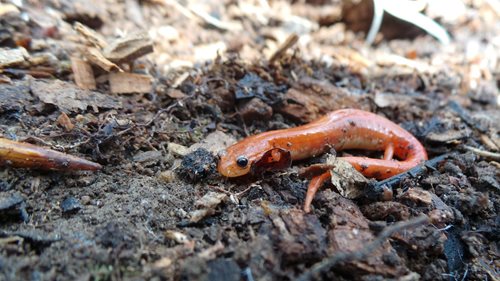Ten Amphibians to Look for This Spring
Northern Leopard Frog
CanalWay Center Wetlands, Ohio & Erie Canal Reservation
These beautiful green frogs with brown spots are often found around semi-wet meadows. Males produce a snore-like call to attract a mate. The wetlands near CanalWay Center are a great place to hear and see these frogs, but if you don't have luck spotting a wild frog, be sure to stop in CanalWay Center to see one.
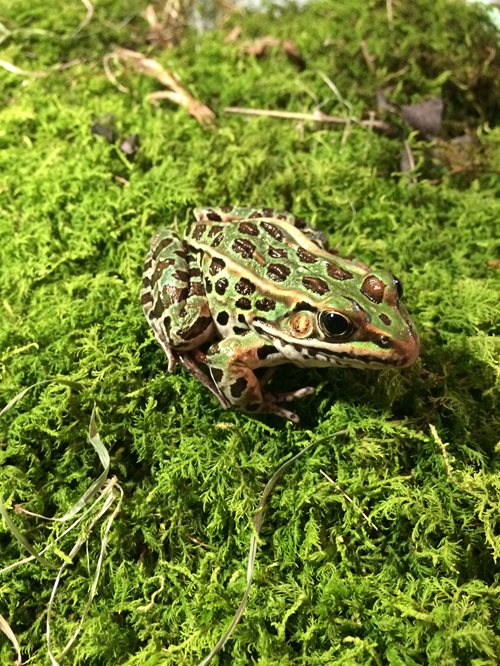
Pickerel Frog
Sunset Pond, North Chagrin Reservation
Due to the two rows of spots along their back, pickerel frogs are often confused with leopard frogs. A great way to tell the difference is to look for a splash of yellow coloration along their sides and under the legs. Males produce a call resembling the sound of a door slowly creaking shut. Sunset Pond and Jackson Field are great spots to hear or see pickerel frogs, and North Chagrin Nature Center has three on exhibit.

Spring Peeper
All Cleveland Metroparks Wetlands
Spring peepers are one of the smallest species of frog in Cleveland Metroparks. The iconic "peep" call and "x" pattern on their backs are excellent identifiers. These quarter-sized treefrogs can be found calling in almost any wetland in Cleveland Metroparks.
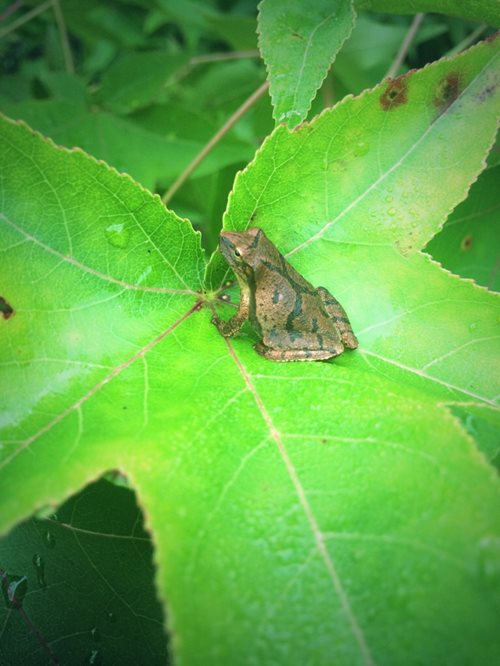
Common Gray Treefrog
All Cleveland Metroparks Wetlands (near wooded areas)
Not only are gray treefrogs the largest species of treefrog in Ohio, they have the ability to change color to camouflage with their surroundings. Males produce a loud trill call that is often heard echoing through nearly all Cleveland Metroparks’ forests after a warm rain. If the weather isn't cooperating, various nature centers have gray treefrogs on exhibit.
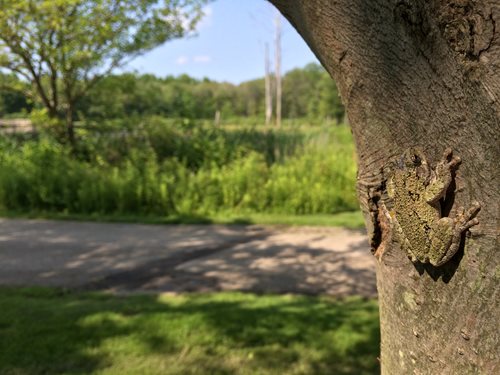
Bullfrog
All Cleveland Metroparks Wetlands
American bullfrogs are the largest frogs native to North America. They are most often seen around the edges of ponds, defending their shoreline territory and hunting for food.
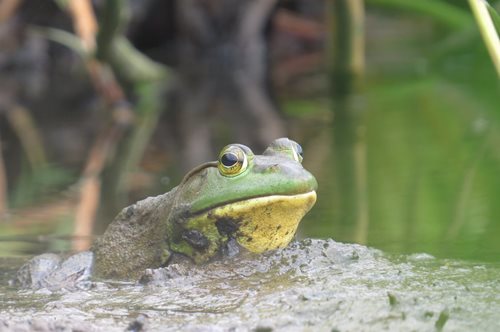
American Toad
All Cleveland Metroparks Woodlands and Meadows
American toads can be found almost anywhere in Cleveland Metroparks. Their dry, bumpy skin allows them to stray further from the water than other frogs, but they must congregate in ponds and other wetlands to breed. Their loud trill calls can be heard on warm, sunny days. Various nature centers have American toads on exhibit.
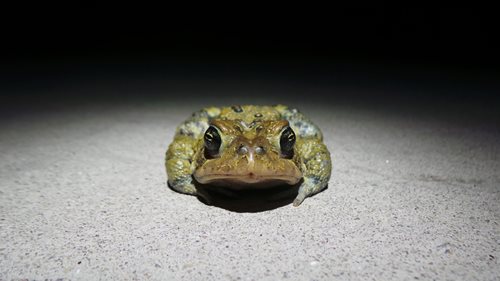
Eastern Red-Spotted Newt
Mature Woodlands in Cleveland Metoparks
Eastern red-spotted newts live the first few years of their life on land in the brightly colored "eft" stage. As they mature, they make their way back to small ponds and vernal pools. The bright red spots on their back are a warning to predators that they are toxic and that it would be unpleasant to eat them. Guests to both North Chagrin Nature Center and CanalWay Center can get a close-up look of Eastern red-spotted newts.
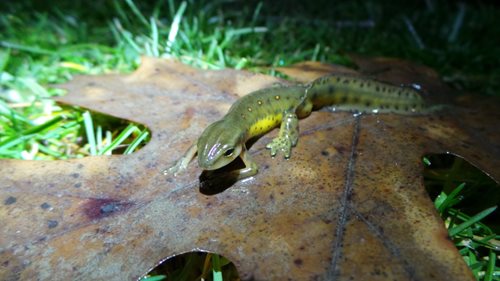
Spotted Salamander
Mature Woodlands in Cleveland Metroparks
Spotted salamanders are the state amphibian of Ohio. Their large size and iconic yellow spots make them one of the most attractive amphibians on this list. Since they spend the majority of their lives underground, be sure to stop into North Chagrin Nature Center or the Watershed Stewardship Center to meet one at any time of year.
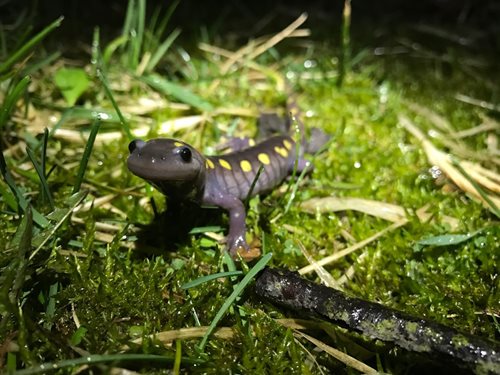
Northern Slimy Salamander
Mature Woodlands in Cleveland Metroparks
Northern slimy salamanders are most active during warm spring rains. They are known for their long tails that produce a glue-like slime when threatened. North Chagrin Nature Center has a Northern slimy salamander on exhibit.
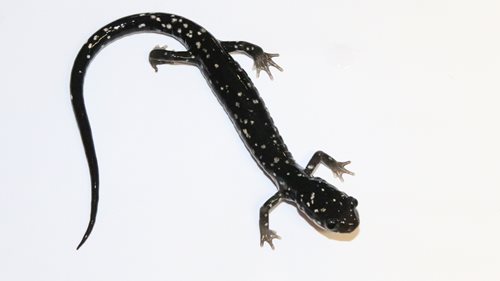
Eastern Redback Salamander
Woodlands in Cleveland Metroparks
Eastern redback salamanders are one of the most common salamanders in Cleveland Metroparks and can be found in moist woodlands throughout the Emerald Necklace. These salamanders have three color morphs – the typical red stripe down their back, a dark colored morph known as a "leadback," and a rare, bright orange morph known as erythristic.
